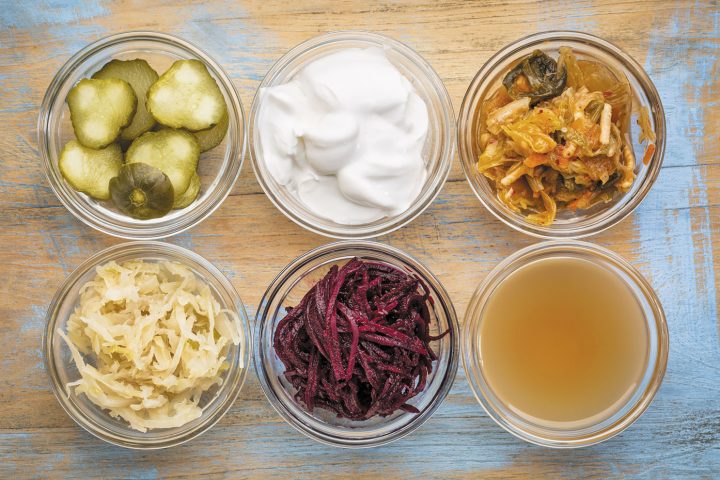
Probiotics are live microorganisms that can provide a variety of health benefits when consumed. Commonly known to improve gut and digestion health, probiotics have also been found to promote clearer skin, reduce depression and boost heart health among other benefits. While supplements are available for those with dietary restrictions, probiotics can be found naturally in many different foods. Here are some of the foods which contain probiotics to help balance gut bacteria and get the most nutritional value out of your favorite meals.
Miso
Traditionally made by fermenting soybeans, miso is a Japanese seasoning that’s a great source of protein, fiber and nutrients as well as being full of probiotics. The seasoning is high in various vitamins and minerals, while also promoting intestinal health. Often available in either white, yellow or brown, miso paste is popular in soups and breakfast dishes and provides a salty, savory flavor.
Buttermilk
Traditional buttermilk is the liquid leftover from making butter and contains probiotics as well as vitamin B12, calcium and potassium. Buttermilk is low in fat and calories and can be a great source of protein. This is a food that’s easy to incorporate and add into everyday meals and dishes to increase your consumption of probiotics.
Tempeh
Tempeh is a soy product made from fermented soybeans that traditionally originated in Indonesia. Tempeh not only contains probiotics but also provides a source of vitamin B12 from the fermentation process. Packed with nutrition, tempeh makes a delicious meat alternative for vegan and vegetarian diets.
Sauerkraut
Made from fermented cabbage and various vegetables, sauerkraut is a great source of probiotics and good bacteria comprising of vitamins, minerals, organic acids and antioxidants. Sauerkraut has an incredibly long shelf life and a unique sharp flavor that works great with rich and salty foods.
Cheese
Raw and unpasteurized cheese will provide the best form of probiotics, containing varieties such as bifidus, bulgaricus, acidophilus and thermophilus. Cheese is a great source of protein and calcium and is an ingredient that’s super easy to incorporate into our diets.
Kombucha
Kombucha is a sweetened green or black tea drink that has been fermented with bacteria and yeast. This beverage is a popular source of probiotics, with many grocery stores now selling it in multiple different versions and flavors.
Kimchi
Popular in Korean cuisine, kimchi is a spicy side dish containing salted fermented vegetables such as cabbage and Korean radish. Made with a variety of different seasonings, Kimchi is a flavorsome dish that is an excellent source of probiotics as well as protein, vitamins, minerals and enzymes, as well as being an aid for digestion.
Yoghurt
Plain yoghurt is arguably one of the best sources of probiotics, with different types of healthy bacteria added into it such as lactobacillus bulgaricus, streptococcus thermophilus and lactobacillus acidophilus. It’s important to look for a yoghurt that’s labelled as having active or live cultures, to ensure the probiotics are still present and haven’t been killed in the fermentation process.
